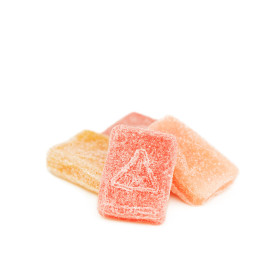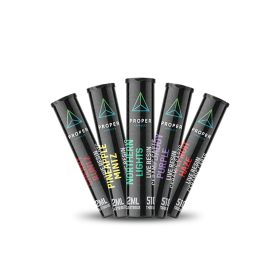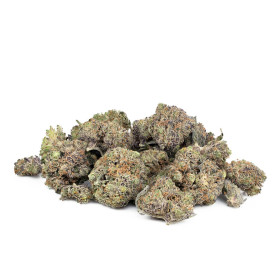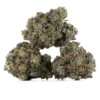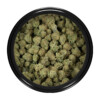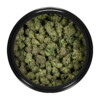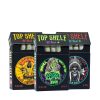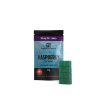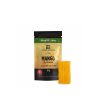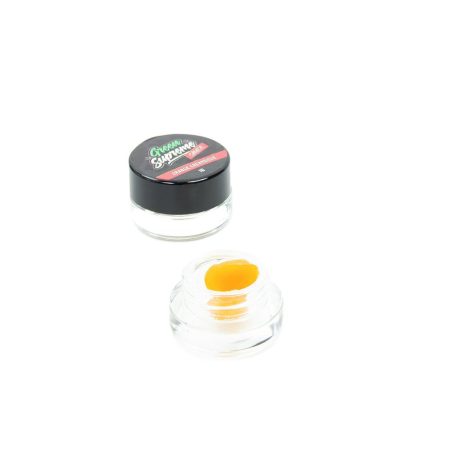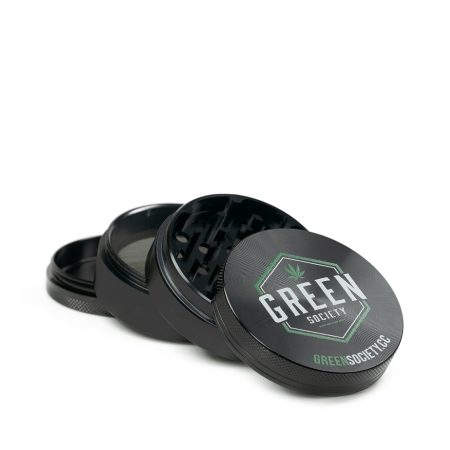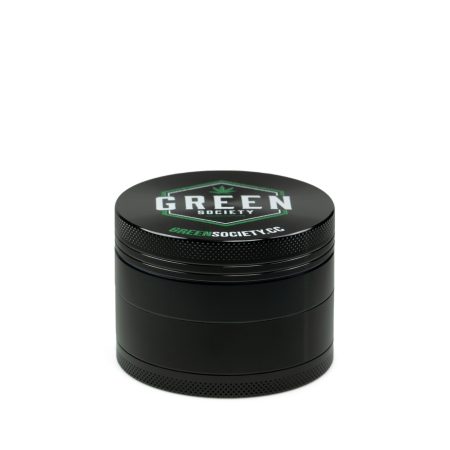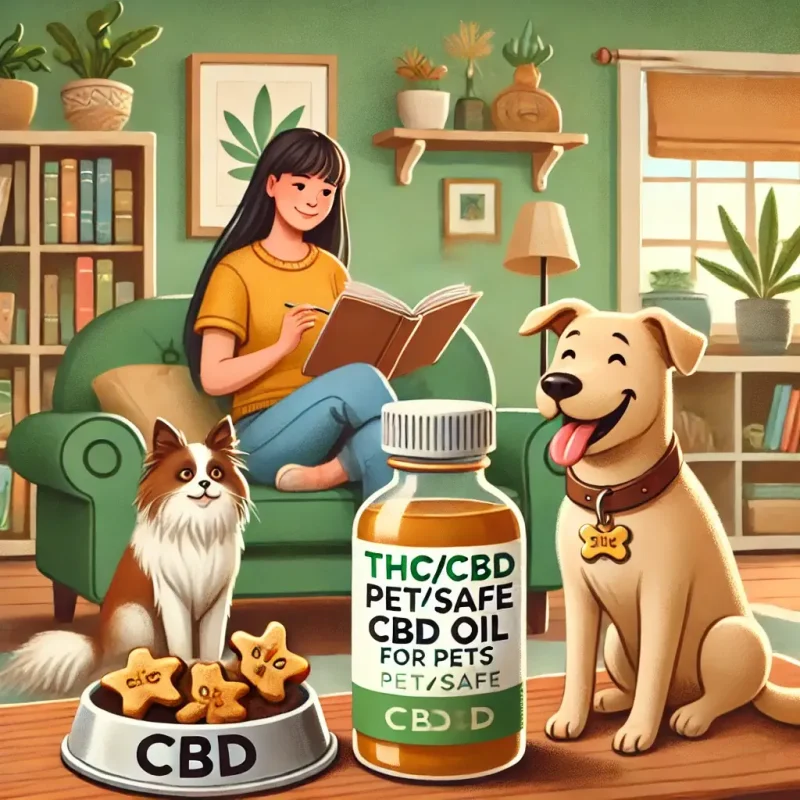Marijuana
THC/CBD Edibles for Pets: What You Need to Know
Introduction
As the legalization of cannabis expands across Canada, many pet owners are exploring the potential benefits of THC and CBD edibles for their furry companions. These compounds, derived from the cannabis plant, are being touted for their potential to alleviate various pet ailments. However, it is crucial to understand the differences between THC and CBD, their effects on pets, and the guidelines for safe usage. This comprehensive guide will delve into everything you need to know about THC/CBD edibles for pets.
Understanding THC and CBD
What is THC?
THC (tetrahydrocannabinol) is the psychoactive component of cannabis that produces the “high” sensation in humans. While it can have therapeutic effects, THC is not typically recommended for pets due to its potential for toxicity and adverse reactions.
What is CBD?
CBD (cannabidiol) is a non-psychoactive compound found in cannabis and hemp plants. Unlike THC, CBD does not induce a high and is generally considered safe for pets. It is praised for its potential therapeutic benefits, including pain relief, anxiety reduction, and anti-inflammatory properties.
The Benefits of CBD for Pets
Alleviating Pain and Inflammation
CBD has been shown to reduce pain and inflammation in pets, making it a popular choice for managing conditions like arthritis and chronic pain. By interacting with the endocannabinoid system, CBD can help regulate pain responses and improve mobility in aging or injured pets.
Reducing Anxiety and Stress
One of the most common uses of CBD for pets is to alleviate anxiety and stress. Whether it’s separation anxiety, noise phobias, or general nervousness, CBD can help calm your pet and promote a sense of well-being. Studies suggest that CBD interacts with serotonin receptors, which play a key role in mood regulation.
Supporting Overall Wellness
In addition to specific conditions, CBD is used to support general wellness in pets. It can boost appetite, improve sleep quality, and enhance overall vitality. Many pet owners use CBD as a preventive measure to maintain their pets’ health and happiness.
Potential Risks and Side Effects
What is a Negative Side Effect of CBD for Dogs?
While CBD is generally safe, some dogs may experience side effects. The most common negative side effect of CBD for dogs is drowsiness. Other possible side effects include dry mouth, lowered blood pressure, and gastrointestinal issues such as diarrhea. It is crucial to start with a low dose and monitor your pet’s response.
Do Vets Recommend CBD for Dogs?
Many veterinarians recognize the potential benefits of CBD for dogs and may recommend it for specific conditions. However, it’s important to consult with your vet before starting your pet on CBD. Your vet can provide guidance on appropriate dosages and monitor for any adverse effects. It’s worth noting that while CBD is gaining acceptance, recommendations can vary depending on individual veterinary practices and regional regulations.
Does CBD Really Help Dogs with Anxiety?
There is growing evidence that CBD can help dogs with anxiety. Many pet owners report significant improvements in their pets’ anxiety symptoms after using CBD. Scientific studies also support these claims, indicating that CBD can reduce stress responses and promote relaxation in dogs. However, results can vary, and it’s essential to choose high-quality CBD products and use them correctly.
How Does CBD Oil Make a Dog Feel?
CBD oil can make a dog feel more relaxed and calm without the intoxicating effects associated with THC. Dogs may experience a reduction in pain and inflammation, improved mood, and increased comfort. It’s important to observe your pet and adjust the dosage as needed to achieve the desired effects without causing excessive sedation or other side effects.
THC and Pets: A Cautionary Note
Is THC Safe for Pets?
According to CBD Dog Health, THC is not considered safe for pets. Dogs and cats are more sensitive to THC than humans, and even small amounts can cause severe reactions. Symptoms of THC toxicity in pets include vomiting, disorientation, excessive drooling, lethargy, and in severe cases, seizures or coma. For this reason, it is crucial to avoid giving pets any products containing significant amounts of THC.
Choosing the Right CBD Products for Your Pet
Look for Quality and Transparency
When selecting CBD products for your pet, choose brands that prioritize quality and transparency. Look for products that are third-party tested and provide detailed lab results to ensure purity and potency. Avoid products with artificial additives or fillers.
Dosage Guidelines
Proper dosing is essential to ensure the safety and effectiveness of CBD for pets. Start with the lowest recommended dose and gradually increase it based on your pet’s response. Dosage can vary depending on your pet’s size, weight, and the condition being treated. Consult your veterinarian for personalized dosage recommendations.
How to Administer CBD to Your Pet
Edibles and Treats
CBD edibles and treats are a convenient and tasty way to administer CBD to your pet. They come in various flavors and dosages, making it easy to find a product that suits your pet’s preferences and needs. Ensure the treats are specifically formulated for pets to avoid any harmful ingredients.
Oils and Tinctures
CBD oils and tinctures offer flexibility in dosing and can be administered directly into your pet’s mouth or added to their food. They typically come with a dropper for precise measurement. Oils and tinctures are ideal for pets who need customized dosages or those with dietary restrictions.
Monitoring Your Pet’s Response
Observing Behavioral Changes
After introducing CBD to your pet, closely monitor their behavior and health. Look for improvements in the symptoms you are targeting, as well as any potential side effects. Keep a journal to track dosages and your pet’s responses, which can help you and your vet make informed adjustments.
When to Adjust Dosage
If your pet shows positive changes with no adverse effects, you may consider gradually increasing the dosage to enhance the benefits. Conversely, if your pet experiences side effects, reduce the dosage or discontinue use and consult your vet.
Legal Considerations in Canada
Legal Status of CBD for Pets
In Canada, CBD derived from hemp is legal and widely available. However, products must adhere to Health Canada’s regulations regarding production and labeling. Ensure you purchase CBD products from reputable sources that comply with these regulations to guarantee safety and quality.
Importing and Traveling with CBD
If you plan to travel with CBD products for your pet, be aware of the regulations in your destination country. Some countries have strict laws regarding CBD and cannabis products, and carrying them across borders can result in legal issues. Always research and comply with local laws to avoid complications.
Conclusion
THC/CBD edibles for pets can offer a range of benefits, from pain relief and anxiety reduction to overall wellness support. However, it’s crucial to understand the differences between THC and CBD, potential side effects, and appropriate usage guidelines. Always consult with your veterinarian before introducing CBD to your pet’s routine and choose high-quality, pet-specific products. With the right approach, CBD can be a valuable addition to your pet’s health and well-being regimen.


